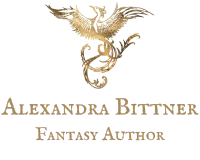Telling the beginning of a story should be the easiest part. I was born. I arrived in this city. I met this person. It should be a simple, concrete event that you can easily point to and say “hey, that’s where all of this started.” I wish finding the beginning of this story was that easy, but it never has been, even once I realized it was a story I needed to tell.
Trying to tell a tale about mental illness, family history, and trauma feels like trying to make sense out of a scatter plot. Dots everywhere, all connected in some way, some more than others, but all distinct. Which of these dots is actually important? Do I just talk about the ones that are connected? And if so, do I start with how they were connected, or the earliest memory in the set?
This conundrum is one of many that has made me put off this project for so long. One of the surest ways to start healing from any trauma is to express the pain in some concrete format, be it painting, poetry, or essay. I have been told since I started therapy years ago that writing about my past and my feelings about it would be a helpful exercise, but still I procrastinated. Because dredging up the past is unpleasant and often painful. And because as a novelist I want this story to be like the stories I am used to writing. I want it to have a beginning, middle, and an end. I want it to flow in a somewhat orderly fashion, but this kind of story refuses to be told that way. I’ve thought of and discarded many ideas of how I can tell this story without really telling it, through fictional characters and places. I may still achieve that goal some day but first I need to tell the truth without any smoke and mirrors.

This still leaves me with the question of where to start. I could start at the true beginning with my mom’s traumatic past. Or I could start towards the end with my own diagnosis with complex post traumatic stress disorder. However, both of those are still a lot to unpack so I suppose I will start with something a little easier to talk about: the name of this blog, Becoming Indomitable.
I have been a voracious reader all of my life. More than that, I have often turned to books in my time of need. There were there to escape to, they were there to teach me things, they were my greatest supporter for a long time. When in doubt, read a book. Therefore, it was no surprise that when I started trying to figure out what was wrong with me and my whole familial situation, I turned to books.
One of the first books I read on my mental health journey, and one of the most affecting, was Victoria Secunda’s When You and Your Mother Can’t Be Friends: Resolving the Most Complicated Relationship of Your Life. The title is a mouthful but as soon as I saw it in the bookstore I knew I needed to read it. After all, calling my relationship with my mother “complicated” was an understatement.
Secunda’s book discusses the different types of daughters that an unhealthy mother-daughter relationship can produce. These include the angel, the super achiever, the cipher, the troublemaker, and the defector. Many daughters will identify with more than one type. I most certainly did. However, the category that hit the closest to home was the defector (hardly surprising for a woman who had to move almost 1,000 miles away from her mother in order to have the space to heal). Secunda describes the deserter not as a life long mutineer but as someone who was “desperate and believed they had no choice.” That “if they stayed within the relationship…they would have killed their mothers, killed themselves, or lost their mind.” Yeah, it’s a lot.
“Some [children] are extremely creative, cocooning themselves within their imaginations, readng voraciously, and writing stories that make some kind of logic out of the turmoil of their famalies.”
-Victoria Secunda

Secunda then discusses the need for the defector to escape their untenable familial situation. She explains that “some Defectors are so maimed by their childhoods that flight is their only coping mechanism” and they have trouble trusting anyone or anything every again. Other defectors she says are “simply ‘indomitable’” and “they seem to have a miraculous ability to retain their sanity, even sanguinity, in the face of parental psychosis.” Flight wasn’t my only coping mechanism, although I won’t deny it was a useful and expedient one. My relationship with my mother worsened throughout my teen years so by the time I graduated college, flight was the obvious (and easiest) choice.
I have my own mental scars and my own issues, but I know I could have ended up much worse. I also know that I am not completely indomitable. No one is. Secunda explains that some indomitable children “are extremely creative, cocooning themselves within their imaginations, reading voraciously, and writing stories that make some kind of logic our of the turmoil of their families.” The first time I read that line I wholly identified. I didn’t (and still don’t) think that I have reached that creative indomitability, but I would like to. I would like to believe that the books I read and the stories I created in turn (some written, some just in my own mind) helped protect me from the worst my demons had to offer. And since it was my mother who encouraged me to read and write, I suppose she was in way protecting me from herself. And now I write about badass heroines with troubled pasts (to no one’s surprise, including my own). I want to seize that creativity as my pathway to healing. I want to become indomitable.


Recent Comments